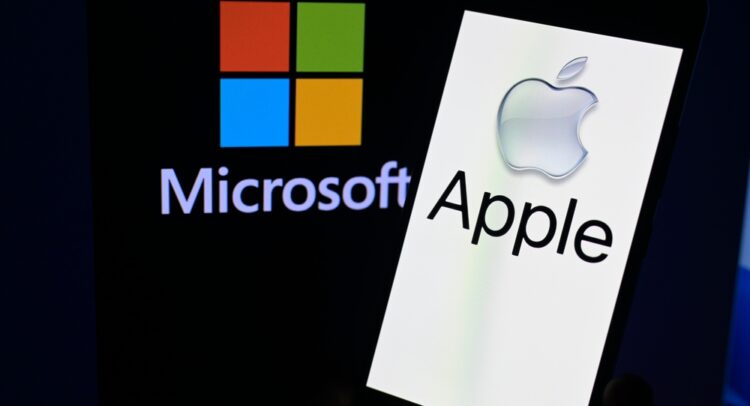Microsoft (MSFT) has done it again. After posting strong Q3 results, the tech giant surged past Apple (AAPL) to become the world’s most valuable company, closing Friday with a market capitalization of $3.2 trillion. Interestingly, Microsoft had briefly taken the top spot in early April before losing it back to Apple when U.S.-China trade tensions heated up.
This time, Apple fell behind with a valuation of around $3.01 trillion. The drop followed its second quarter of Fiscal Year 2025 earnings, which were clouded by concerns over weakening iPhone demand in China and rising tariff pressures.
Microsoft stock climbed 2.3% on Friday, while Apple slipped more than 3%, helping seal the gap between the two tech giants.
Q3 Earnings Show Microsoft’s AI and Cloud Strength
Microsoft delivered one of its best quarters ever, easily beating expectations. For the third quarter ended March 2025, the company posted earnings per share (EPS) of $3.46 on revenue of $70.1 billion. These strong results were powered by rapid growth in its Azure cloud platform, which saw a 33% jump in revenue.
The momentum in AI and cloud has not only improved Microsoft’s products but also boosted investor confidence. The company expects Azure revenue to grow 34–35% in constant currency in Q4. It’s also sticking with its plan to invest around $80 billion in AI infrastructure during Fiscal 2025.
Following the earnings beat, several analysts raised their price targets on MSFT. Scotiabank’s analyst Patrick Colville increased his target to $500 from $470 while keeping a Buy rating. He said the company is “poised to excel,” calling Microsoft a key player in the AI race with tools like Azure and Microsoft 365 Copilot likely to fuel long-term growth.
Apple Struggles under Tariff Pressure
Apple also topped revenue and profit expectations for its fiscal Q2, but the stock dipped after the report. The company warned of a $900 million tariff-related hit in the current quarter. When asked about future impacts, CEO Tim Cook declined to speculate, saying he didn’t want to “predict the future.”
Apple’s heavy reliance on its China-based supply chain has made it vulnerable to trade tensions. That risk is now affecting both its earnings outlook and investor sentiment.
After the report, a few analysts pulled back on the stock. Jefferies analyst Edison Lee downgraded Apple from Hold to Underperform, warning that tariff issues could weigh on profits over time. Also, Rosenblatt analyst Barton Crockett downgraded the stock from Buy to Neutral and cut his price target to $217. Given the “premium multiple” the stock is trading at, along with tariff and regulatory headwinds, the analyst prefers to remain on the sidelines for now.
Which Stock Is Better, MSFT or AAPL?
We used TipRanks’ Stock Comparison Tool to evaluate key metrics for Microsoft and Apple. Currently, Microsoft stock holds a “Strong Buy” consensus rating from Wall Street, along with a “Perfect 10” Smart Score on TipRanks. It also offers a 16.3% upside potential, higher than Apple’s. In comparison, Apple stock carries a “Moderate Buy” consensus rating, with analysts projecting an 11.98% upside from current levels.

















